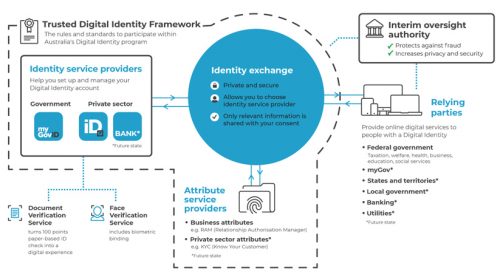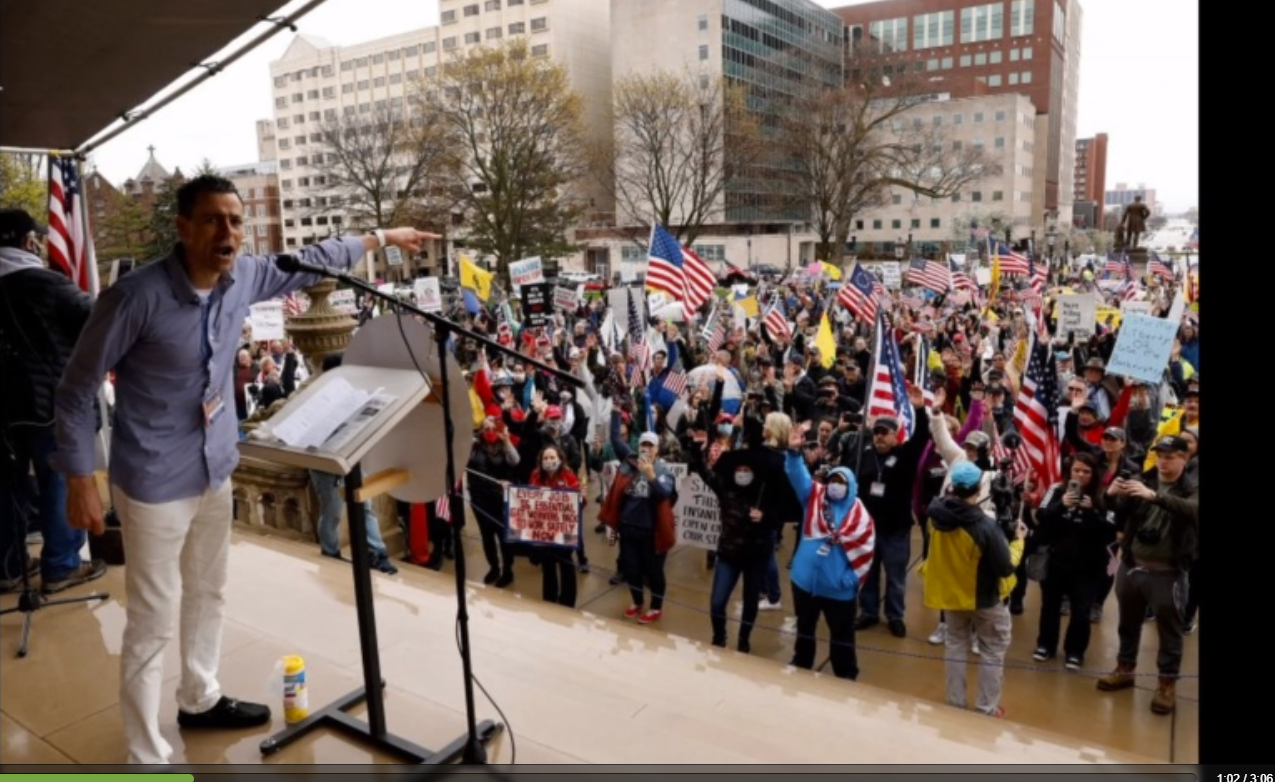Chapter 4: Public Works Mean Taxes
For the lips of a strange woman drop as an honeycomb, and her mouth is smoother than oil: But her end is bitter as wormwood, sharp as a two-edged sword (Proverbs 5:3-4).
The author of Proverbs in the first nine chapters contrasts the faithful wife with the strange woman. He uses the metaphor of the strange woman for alluring lies that ultimately betray the person who accepts them. Here is the passage’s underlying message: something can look very appealing on the surface, but the end thereof is bitter as wormwood. Why? Because there is a system of moral cause and effect in history. When someone violates fundamental ethical principles, he will eventually experience negative sanctions. This is also true of entire social orders.
This passage has economic implications. The specific ethical context of the passage is this commandment: “Thou shalt not commit adultery.” But the general ethical context of the passage also applies to this commandment: “Thou shalt not steal.” This in turn applies to government spending. The passage in Proverbs warns us against all versions of the economic error that Bastiat called “the thing not seen” — the true economic cost of our actions.
This chapter deals with public works projects. These are projects that are funded by the state. They are highly visible. They look very productive. It is relatively easy to gain public support for the construction of these projects. On the surface, they look appealing, but the end thereof is bitter as wormwood: higher taxes. But the wormwood goes far deeper than higher taxes, as we shall see. There are several layers of things not seen.
The appeal of public works is the appeal of something for nothing. It is the appeal of the devil’s temptation of Jesus: stones into bread (Matthew 4:3). The voters are told that a public works project will do two things. First, it will create employment. Second, it will create wealth. Whenever we hear such an appeal, we should remember the principle: “There are no free lunches.” This is the underlying reality of the things not seen — plural.
With this in mind, let us return to the familiar five-point model of the fallacy of the broken window.
Throughout this book, I am trying to make clear that there are two issues here: judicial sovereignty and economic authority. These are separate concepts. They are also inescapably related concepts. Judicial sovereignty is primary.
The fundamental principle of ownership in the biblical context is this: there is a tight judicial connection between ownership and personal responsibility. This is a matter of judicial sovereignty: the legal rights of ownership. These legal rights establish immunity. They establish legal boundaries.
Economic theory informs us that there is also a tight economic connection between ownership and personal responsibility. This has to do with economic costs. When an asset owner uses it for one purpose, he cannot use it for another. The highest value forfeited use is his cost of ownership. This cost cannot be avoided. This is a matter of economic authority. It is an inescapable implication of judicial sovereignty: the legal right to use the resources we own, which therefore is the legal right to exclude others. There are inevitable personal costs associated with ownership; there are also personal benefits. Jesus said that we must count the costs (Luke 14:28-30).
An individual owns an asset. Civil law upholds this claim. He is convinced that he is responsible before God and other people for the use of this asset. It is part of his wealth. He may see that he is responsible for the increase of his wealth. Maybe he has read the 25th chapter of the Gospel of Matthew, which presents the parable of the talents.
Ownership is always tied economically to allocation. It has to do with budgeting. Any scarce economic resource that is used for one thing cannot be used for another thing. The owner must choose. There is no escape from this judicial responsibility. There is also no escape from this economic responsibility.
Under biblical law, and also under free market institutions, an owner has a sense of ownership. He believes that he owns the legal right to use an asset. Ownership is a bundle of legal rights. By rights, I mean legal immunities from coercion. This means legal immunities from private coercion, and it also means legal immunities from state coercion.
This assumption of ownership rights permeates every aspect of the free market economy. It permeates every aspect of individual economic decision-making. This is the foundation of the free market social order. This legal foundation is taught in the Bible, and Christian economic analysis must take this into consideration.
We know the phrase posted in retail shops: “If you break it, you own it.” This means that if you break it, you must pay for it. But there is another side of ownership: “If you own it, you may legally break it.” Both must be affirmed: purchase and use. When you buy it, you also buy the bundle of rights that legally comes with it.
The Bible teaches that men are legal agents of God. It also teaches that one of the ways that this legal responsibility is manifested is through ownership. This makes owners stewards of God. This is hierarchical. But this economic stewardship also has what we call horizontal aspects. Owners are stewards for third parties. Third parties bid for ownership. The results of these bids is an array of prices. Would-be owners shout to owners: “Sell it to me!” or “Let me rent it!” Wherever there is a price, there we find economic stewardship. This is inescapable. The owner is an economic agent of society. He decides who gets to use whatever he owns, and also on what terms. This is an inescapable economic implication of judicial sovereignty.
People make decisions in terms of what they perceive to be immunity from taxation. They believe that they have the legal obligations and also the economic opportunities associated with ownership. To increase their wealth, they must participate in the social division of labor. This leads them to cooperate with others. They make decisions in terms of whatever they want to buy. Whatever they want to buy is closely related to whatever they have to offer in exchange. There are no free lunches.
The exchange system in a free market economy extends the division of labor. People make decisions regarding the allocation of their wealth, and they do so in terms of their perceptions of opportunities for service: their opportunities to serve others, but also others’ opportunities to serve them. This focus on service comes from an inevitable aspect of stewardship in a world of scarce resources: asset allocation.
To achieve their goals at a low cost, they have to gain cooperation from other people, especially strangers. The main way that they do this is to offer opportunities to these people. We are back to Adam Smith’s famous dictum: we should not expect to gain what we want from the butcher or the baker based on an appeal to their charitable instincts. We should expect to gain cooperation on the basis of this offer: “I will provide what you want, if you will provide me with what I want.”
In other words, the value of the window is not simply the benefits that the window will provide in terms of letting light in and keeping cold and bugs out. It is also the right of ownership that someone has with respect to his window. Specifically, it is his window. It is not somebody else’s window. This fact of ownership, he believes, entitles him to the use of his window. This legal right of use, which inescapably means the right to exclude others, may be of much greater value to him than the benefits expected from the window itself.
Wealth gives owners greater freedom of action. Wealth, when combined with legal immunities from coercion, leads asset owners to make specific allocation decisions. They count the costs and benefits of their decisions. They seek cooperation. They want to participate in the social division of labor. All of this is threatened by a deliberately tossed stone.
In the case of public works, the stone has the characteristic features of the strange woman. It has great allure. This is not simply a stone picked up at random, and then tossed through a window out of spite or out of envy. This particular stone is based on a conceptual model. It may be based on a physical working model, but the conceptual model is the key. It is a model of great beauty. It is something to be desired. It offers specific benefits to the person who takes advantage of it. The benefits are obvious; the costs are deliberately concealed.
There are always hidden costs of this stone. Always, the benefits must be paid for. Specifically, the benefits must be paid for by specific people. Somebody is going to benefit from a particular public works project. But somebody else is going to have to pay for it. In some cases, this may be the same person, but in all likelihood, the person making the decision to toss the stone sees that he will gain more from the outcome of the stone tossing then he will pay.
This is not a matter of envy: the destruction of what someone else owns. Rather, this is a matter of jealousy: the desire to get part of what someone else owns. The underlying assumption of the stone-thrower is this: “Somebody else is going to have to pay more to get the benefits than I will have to pay.” There is no question regarding the underlying economics of this relationship: it is theft.
With a public works project, the state has tossed the stone through the windows of taxpayers. The state has therefore forced existing taxpayers to adopt new budgets. These budgets are not what each of these taxpayers would have chosen, had the state not started some public works project, and had the state not been forced to tax certain individuals in the general public. Each taxpayer would have made individual allocation decisions in terms of his original budget. Now he must re-think his decisions in terms of a different, smaller budget. Taxpayers would have made their plans in terms of personal balance sheets; now they are forced by state coercion to make their decisions in terms of reduced balance sheets. The ability of individuals to achieve their personal goals is reduced when the tax bills come due.
Politicians promote a pubic works project in terms of benefits that will be seen. The exact details of who is going to pay for these benefits are always kept in the background. Politicians do not want voters to make a careful analysis of the real costs of the project. They persuade the voters that the costs will be born by somebody else, or at least most of the costs will be born by somebody else.
Another major loss is the reduction of voluntary cooperation. People would have made different plans, and they would have coordinated these plans with different people. The new public works project will no doubt foster new kinds of exchange relationships. Some people will be benefitted. But the question is this: Will a social order based on voluntary cooperation be extended by state compulsion into the economy? Unfortunately, hardly anybody ever asks this question.
There will be new employment in those areas associated with the public works project. But there will also be reductions in employment in all of those areas where the taxpayers’ money would otherwise been spent, but which now is spent by the state. We see the benefits; we do not see the losses. We see people employed on the public works projects; we do not see the people who are not employed because there are no private works projects as a result of the taxes.
Another major aspect of this that is rarely discussed is this: What is it going to cost to keep the public work in repair? Maintenance costs are inevitable. Who is going to bear the burden of these costs? Even when a fee is attached to a public work, such as a toll bridge or a toll road, we find that there is political maneuvering by other groups to get their hands on the flow of income generated by the fees. This has been basic to modern politics for a century or more.
The biblical principle of personal ethics is this: increased personal responsibility. The message of the Bible is clear: there will be no plea-bargaining at the final judgment. This is the message of the parable of the talents. The concept of public works projects undermines personal responsibility. “Blame the committee!” There are no committees at the final judgment.
After the tax bills arrive, productive people will begin to allocate more resources to tax avoidance and away from economic production. Resources will go to lawyers and accountants rather than engineers and marketers. This is good news for lawyers and accountants, but bad news for the general public. Productivity will decline.
There will be a reduction in the division of labor. The division of labor is extended by voluntary cooperation. People learn to trust other individuals and companies over extended periods of time. They establish personal networks. People trust each other with respect to all kinds of projects. But this zone of personal interdependence is thwarted by increased taxation.
This is all the consequence of ignoring the reality of the things not seen. Voters are mesmerized by the vision of the benefits generated by the public works. They see benefits flowing for decades or longer. But they do not see the costs.
The popularity of the things seen is likely to lead to the construction of more public works. There will be more government stones tossed through more privately owned windows. Property rights will be violated again and again. The negative consequences of this are inevitable. Sometimes, we are wise enough to call them what they are: unintended consequences.
Sometimes they are called side effects. We forget what should be obvious: there are no side effects. There are only effects. The effects we do not like are the ones we call side effects.
One of these effects, which we like to call side effects, is this: taxes discourage production. I will cover this in the next chapter.
Public works projects are state subsidies to one group of citizens. These subsidies are paid for by taxpayers. The benefits are visible. The taxes are paid in private. There will be an organized constituency behind a public works project. There will be no such organized constituency behind the taxpayers.
Just as with a strange woman, a public works project starts wearing out as soon as it is introduced to respectable society. Many of the voters who once enjoyed its benefits will inevitably grow bored. There are always newer, more alluring projects. Eventually, it will need the equivalent of a facelift. But even a facelift dies not help. It still sags. The wrinkles get worse. Hardly anyone comes to visit any more. Someday, it will have to be replaced. The key question is this: Will the replacement be another strange woman?
Men should have better taste. They should adopt a more long-run view. They should count all of the costs of their actions: the things not seen. But they don’t. That is why there are authoritative commandments to remind them in times of great temptation. They all boil down to this: “Don’t.”
For all chapters, go here: http://www.garynorth.com/public/department181.cfm.








